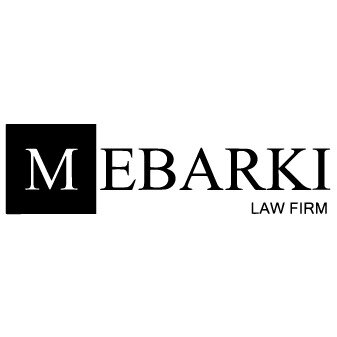Best Employer Lawyers in Algiers
Share your needs with us, get contacted by law firms.
Free. Takes 2 min.
List of the best lawyers in Algiers, Algeria
About Employer Law in Algiers, Algeria:
Employer law in Algiers, Algeria, governs the relationship between employers and employees in the workplace. It covers various aspects such as employment contracts, wages, working hours, occupational health and safety, and termination of employment.
Why You May Need a Lawyer:
You may need a lawyer specializing in Employer law in Algiers, Algeria, for situations such as contract disputes, wrongful termination, discrimination claims, wage disputes, or navigating complex labor laws.
Local Laws Overview:
Key aspects of Employer law in Algiers, Algeria, include the Labor Code, which sets out the rights and obligations of both employers and employees. The law also regulates collective bargaining agreements, trade unions, and social security contributions.
Frequently Asked Questions:
1. Can an employer terminate an employee without cause?
In Algeria, employers can terminate employees for valid reasons as outlined in the Labor Code. However, arbitrary dismissals are prohibited, and employees have the right to challenge wrongful termination.
2. What are the rights of employees regarding wages and working hours?
Employees are entitled to receive a minimum wage set by the government and are protected by laws regarding working hours, overtime pay, and annual leave. Employers must comply with these regulations.
3. Are there laws against workplace discrimination in Algeria?
Yes, the Labor Code prohibits discrimination based on race, gender, religion, disability, or any other protected characteristic. Employers must ensure a fair and non-discriminatory work environment.
4. How can employees file a complaint against their employer for labor law violations?
Employees can file a complaint with the relevant labor authorities or seek legal assistance to address labor law violations by their employer.
5. Are employers required to provide health and safety protections in the workplace?
Yes, employers in Algeria are obligated to provide a safe working environment, including proper safety measures, training, and equipment to protect employees from workplace hazards.
6. Can employees form or join a trade union in Algeria?
Employees have the right to form or join a trade union to protect their interests, negotiate collective agreements, and advocate for better working conditions.
7. What are the legal requirements for employment contracts in Algeria?
Employment contracts in Algeria must be in writing and include essential terms such as job duties, wages, working hours, and notice periods for termination. Both parties must adhere to the terms of the contract.
8. Can employees claim compensation for unfair dismissal?
If an employee believes they were unfairly dismissed, they have the right to seek legal recourse and claim compensation for damages resulting from wrongful termination.
9. How does the law address paid leave and holidays for employees?
The Labor Code in Algeria establishes the minimum entitlement for paid annual leave and public holidays for employees. Employers must comply with these regulations and grant employees their entitled time off.
10. What are the procedures for resolving labor disputes in Algeria?
Labor disputes can be resolved through negotiation, mediation, or arbitration. If a resolution cannot be reached, the case may be brought before the labor courts for adjudication.
Additional Resources:
For more information on Employer law in Algiers, Algeria, you can consult the Algiers Chamber of Commerce, the Ministry of Labor and Social Security, or seek guidance from legal professionals specializing in employment law.
Next Steps:
If you require legal assistance or have concerns regarding Employer in Algiers, Algeria, it is recommended to seek the advice of a qualified attorney who can provide guidance and representation to protect your rights and interests in the workplace.
Lawzana helps you find the best lawyers and law firms in Algiers through a curated and pre-screened list of qualified legal professionals. Our platform offers rankings and detailed profiles of attorneys and law firms, allowing you to compare based on practice areas, including Employer, experience, and client feedback.
Each profile includes a description of the firm's areas of practice, client reviews, team members and partners, year of establishment, spoken languages, office locations, contact information, social media presence, and any published articles or resources. Most firms on our platform speak English and are experienced in both local and international legal matters.
Get a quote from top-rated law firms in Algiers, Algeria — quickly, securely, and without unnecessary hassle.
Disclaimer:
The information provided on this page is for general informational purposes only and does not constitute legal advice. While we strive to ensure the accuracy and relevance of the content, legal information may change over time, and interpretations of the law can vary. You should always consult with a qualified legal professional for advice specific to your situation.
We disclaim all liability for actions taken or not taken based on the content of this page. If you believe any information is incorrect or outdated, please contact us, and we will review and update it where appropriate.











